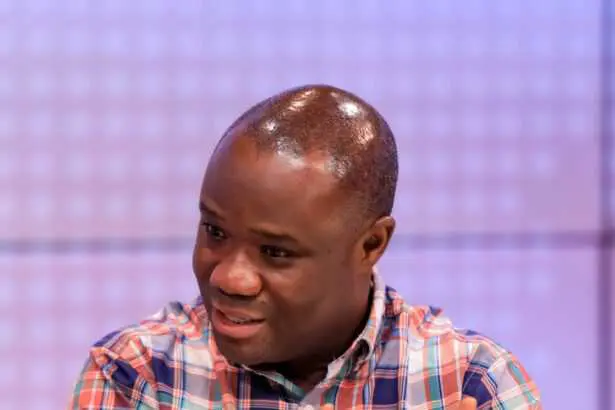Copyright ghanamma

The Government of Ghana is finalizing legislation that promises to end chronic underfunding plaguing national sports teams through a dedicated fund drawing from fourteen revenue sources including betting taxes, lotteries, and athlete transfer fees. Felix Kwakye Ofosu, Minister for Government Communications, confirmed Thursday that work continues on the Sports Fund Bill before it’s laid before Parliament for consideration. The proposed legislation aims to create a sustainable pool of resources for sports infrastructure, capacity building, and athlete welfare, addressing persistent complaints about inadequate investment that leaves Ghanaian athletes competing at global events without proper preparation or support. A draft of the proposal, shared by Kwakye Ofosu on October 10, 2025, outlines 14 potential funding sources, including parliamentary allocations, sports lotteries, sponsorships, grants, and taxes from sports betting companies. Additional inflows will come from gate proceeds, athlete transfer fees both locally and abroad, sponsorship deals, international federation support, and percentages of revenues from competitions and sports vendors. The minister stated that the condition of Ghanaian sports, including football, athletics, and boxing, continues raising concerns particularly about infrastructure, incentive packages, and general investment. He expressed belief that the bill will generate significant resources enabling investment in sports that yields desired outcomes, arguing Ghana can’t expect to perform at the highest level globally when not investing what it should. That acknowledgment reflects years of frustration from athletes and sports administrators who’ve watched promised support fail to materialize while competitors from similarly situated countries pull ahead through sustained investment. Ghana’s sports infrastructure largely consists of aging facilities built decades ago, with the Accra Sports Stadium, Baba Yara Stadium, and other major venues requiring constant repairs rather than serving as modern training and competition centers. Sports Minister Mustapha Ussif disclosed on the floor of Parliament on October 21, 2025, that the Ministry of Sports and Recreation will soon present key bills including the Sports Fund Bill, Sports Fund Regulations, National Sports College Bill, and Anti-Doping legislation. That bundled approach suggests government recognizes sports governance needs comprehensive reform rather than piecemeal fixes. The Sports Fund represents one element in broader restructuring aimed at professionalizing how Ghana develops and supports athletes. The National Sports College Bill would create dedicated training institutions, while Anti-Doping legislation would align Ghana’s framework with international standards required for Olympic participation and other major competitions. Together, these measures could transform Ghana’s sports ecosystem if properly implemented and funded. Kwakye Ofosu clarified on October 10 that no special levy has been proposed or approved by Cabinet, contradicting earlier speculation following comments attributed to a Ghana Olympic Committee member. The fund will draw on existing revenue streams within sports and gaming sectors rather than imposing new taxes on the general public, an important distinction given Ghana’s already heavy tax burden and resistance to additional levies. That clarification matters because initial reports suggesting a new sports levy sparked public backlash from citizens who feel overtaxed and skeptical that additional government revenue actually reaches intended purposes. By positioning the fund as capturing sports related income already flowing through the economy rather than creating fresh tax obligations, the government hopes to reduce opposition while still generating substantial resources. The fourteen proposed funding sources include some straightforward mechanisms like parliamentary allocations and international federation support alongside more complex arrangements involving percentages of betting taxes, transfer fees, and commercial vendor revenues. How those percentages get calculated, who collects them, and what oversight ensures the money actually reaches the fund rather than getting diverted will determine whether the legislation delivers promised results. Ghana’s sports betting industry has exploded in recent years, with companies like BetPawa, SportyBet, and 1xBet attracting millions of young Ghanaians wagering on football matches and other events. The industry generates substantial tax revenue, though critics argue it encourages gambling addiction and financial irresponsibility. Dedicating a portion of betting taxes to sports development creates a logical connection between gambling on sports and funding athletes, though it also ties the fund’s health to an industry with questionable social impacts. Athlete transfer fees represent another potentially significant revenue source, particularly given how many Ghanaian footballers move to clubs abroad each year. Stars like Mohammed Kudus, Thomas Partey, and Inaki Williams command multimillion dollar transfer values when changing clubs. If the fund captures even small percentages of those transactions, it could generate meaningful income. But implementing collection mechanisms for international transfers involving multiple countries and jurisdictions poses administrative challenges. The government expects the Sports Development Fund to become operational by the first quarter of 2026, providing stable funding for grassroots sports, maintenance of facilities such as the Accra Sports Stadium, and support for national teams and athletes across various disciplines. That timeline assumes Parliament passes the legislation relatively quickly and implementing regulations get drafted efficiently, outcomes not guaranteed given Ghana’s sometimes sluggish legislative processes. Past sports funding initiatives haven’t always succeeded as promised. The Ghana League Clubs Association has repeatedly complained about unpaid subsidies, while national teams have threatened strikes over unpaid allowances and bonuses. The Black Stars famously refused to train before a 2014 World Cup match until the government flew cash to Brazil to settle bonus disputes. Such incidents damage Ghana’s reputation and distract athletes from competition when they should focus on performance. The proposed fund aims to prevent such embarrassments by creating predictable, reliable revenue streams independent of annual budget battles or ministerial discretion. If properly structured with transparent governance and regular audits, it could ensure athletes receive promised support without delays or excuses. But if the fund becomes another bureaucratic layer subject to political interference and resource diversion, it’ll simply add complexity without solving underlying problems. Key implementation questions remain unanswered in available information. Who will govern the fund and make allocation decisions? What criteria will determine which sports receive what shares? How will the fund balance support for elite athletes competing internationally against grassroots development that builds future talent? Will athletes and sports administrators have input into governance, or will it remain purely ministerial control? International examples offer lessons about what works and what doesn’t. Countries like Kenya and Ethiopia have thrived in athletics through focused investment in specific disciplines where they enjoy competitive advantages. South Africa has built relatively successful sports programmes through lottery funding similar to what Ghana proposes. But corruption and mismanagement have undermined sports funds in other African countries, turning well intentioned legislation into vehicles for patronage rather than athlete support. Ghana’s draft proposal includes percentages of revenues from athlete certification, federation licensing, and equipment importation, creating comprehensive capture of sports related economic activity. That breadth could generate substantial income if properly administered, but it also creates multiple collection points where leakage or corruption could occur. The fund’s ultimate success will depend heavily on governance structures and enforcement mechanisms that prevent such losses. The minister’s confidence that the bill will generate significant resources enabling proper sports investment reflects optimism that fourteen diverse revenue sources collectively produce enough income to meaningfully improve infrastructure, training, and athlete support. Whether that optimism proves justified depends on how much each source actually contributes once the fund becomes operational. Projections about expected revenues weren’t included in available information, making it difficult to assess whether proposed sources can realistically fund Ghana’s sports ambitions. Parliament’s consideration of the Sports Fund Bill will test whether legislators from both ruling and opposition parties see sports funding as worthy of creative financing mechanisms or whether they view it as discretionary spending vulnerable to budget cuts when resources get tight. Sports development lacks the immediate political urgency of healthcare or education, potentially making the fund’s dedicated revenue streams especially valuable by insulating sports investment from competing priorities.



